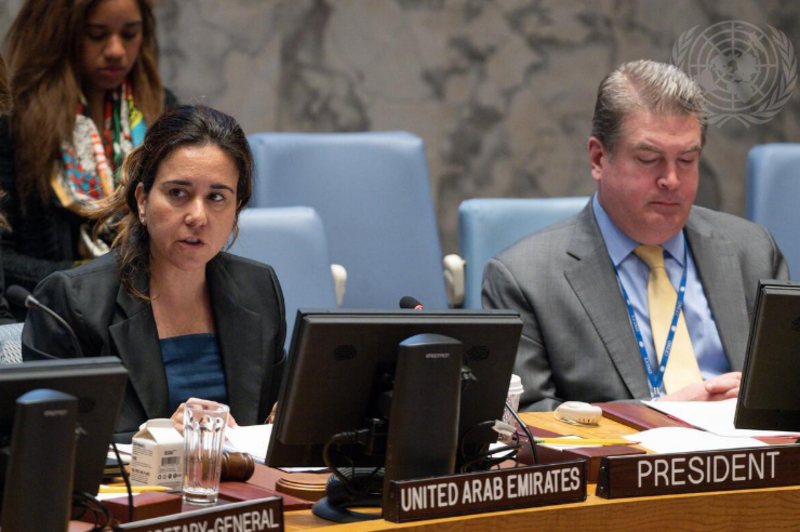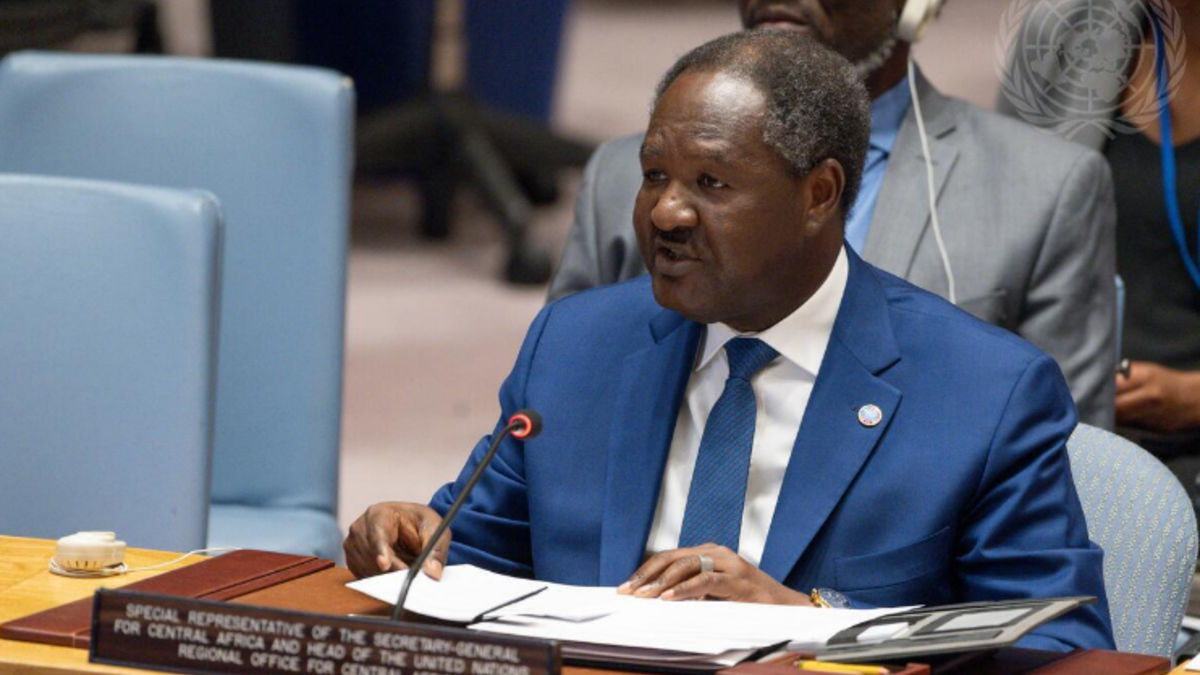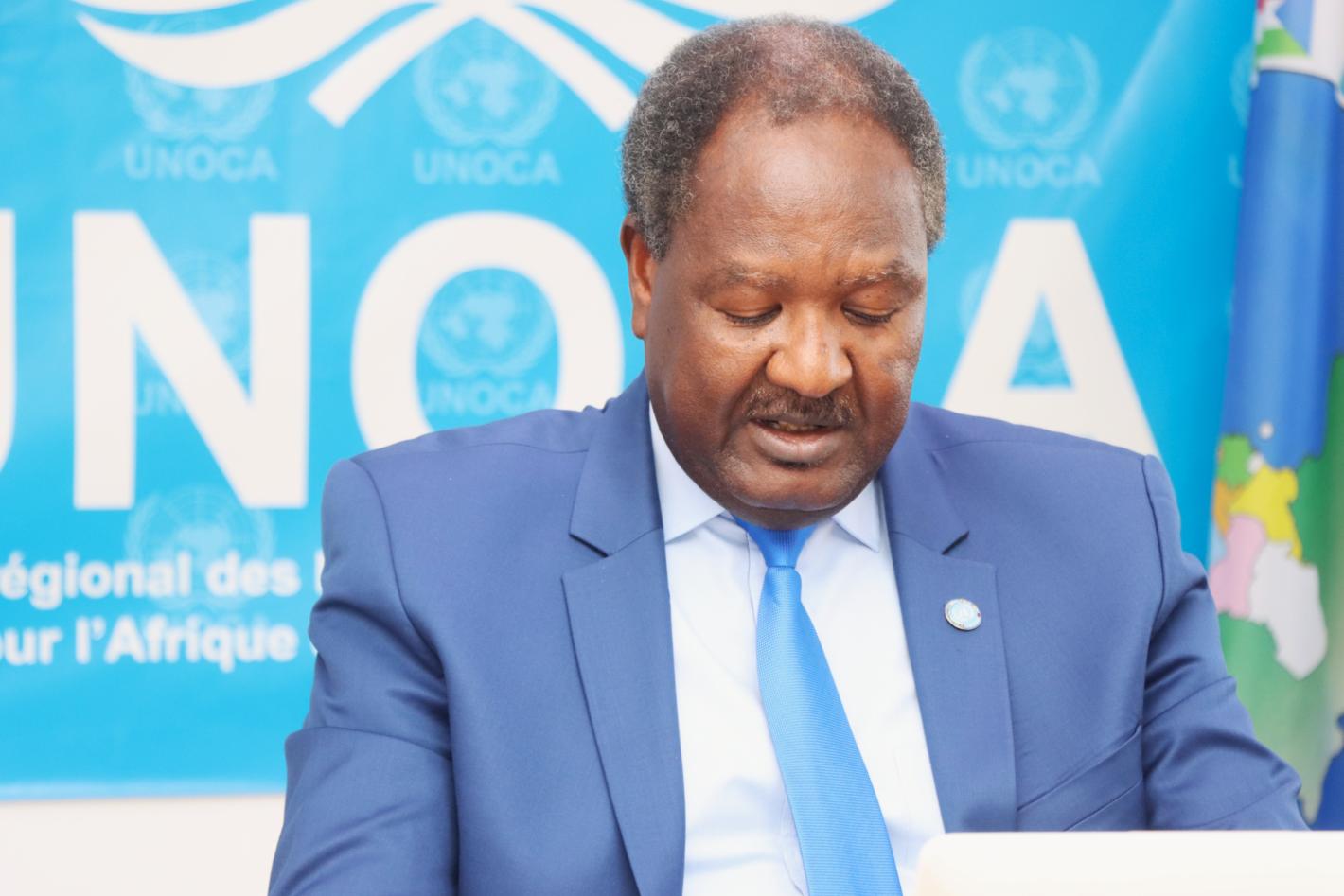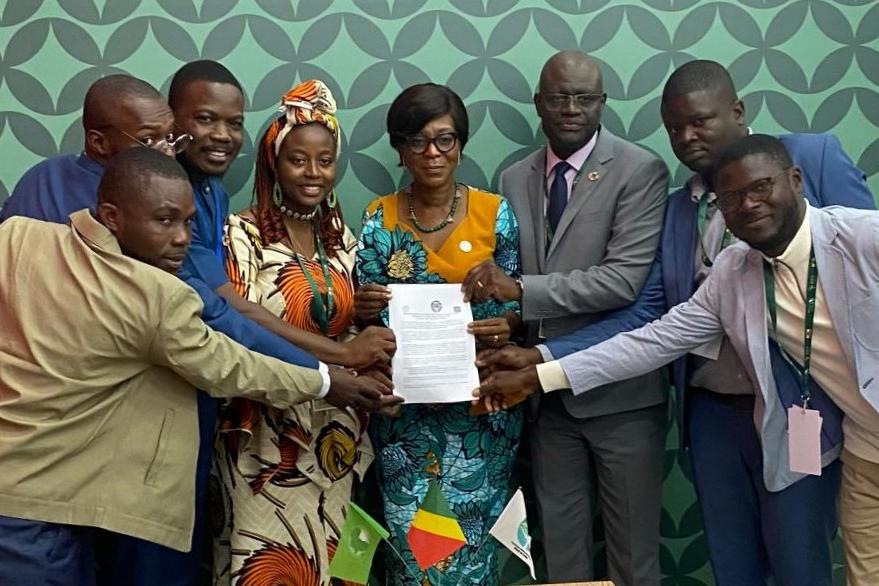The Special Representative and Head of UNOCA, Abdou Abarry, introduced on Monday 5 June to the Security Council the 24th report of the Secretary-General of the United Nations on the situation in Central Africa and the activities of the Office he leads. He drew attention on crucial matters, insisting on provisions to ensure calm and security during political and electoral processes to be held by the end of the year in several countries falling within its mandate. “We will work to ensure […] that the episodes of violence, fueled in particular by hate speech, which have marked elections in the past, are avoided at all costs,” he pointed out, underlining that the support of the Security Council members was "valuable" for achieving this goal. "Peace and stability are at stake" in Central Africa, he explained, reiterating his "firm commitment to support the States of the sub-region and ECCAS in their efforts to build this Central Africa of prosperity that we want." Mr. Abarry added that "this is possible, with the potentialities of the countries [members of the Economic Community of Central African States (ECCAS)]."
Put an end to attempts on the lives of journalists
In this perspective, the Head of UNOCA encouraged those who "are going to organize elections in the coming months, to ensure that they are inclusive and peaceful." Participating through video conferencing, the President of the ECCAS Commission, Mr. Gilberto Da Piedade Veríssimo, noted that "elections at various levels are expected during this year 2023 in the Central African Republic, Gabon and the Democratic Republic of Congo,” as well as the “constitutional referenda […] in CAR and Chad.” He mentioned the support that the Community provides to Member States in this context, and highlighted the challenges they face. "Those challenges relate mainly to disagreements around the composition of the bodies in charge of elections, provisions of electoral legislation, credibility of electoral registers, the authenticity of election results, etc.," said Mr. Veríssimo. He added that, thanks to its revised Treaty in force since 2020, "ECCAS now has adequate instruments likely to facilitate its action in the political, peace and security domains." He specified that these instruments have recently been activated in Sao Tomé-et-Principe and in Chad.
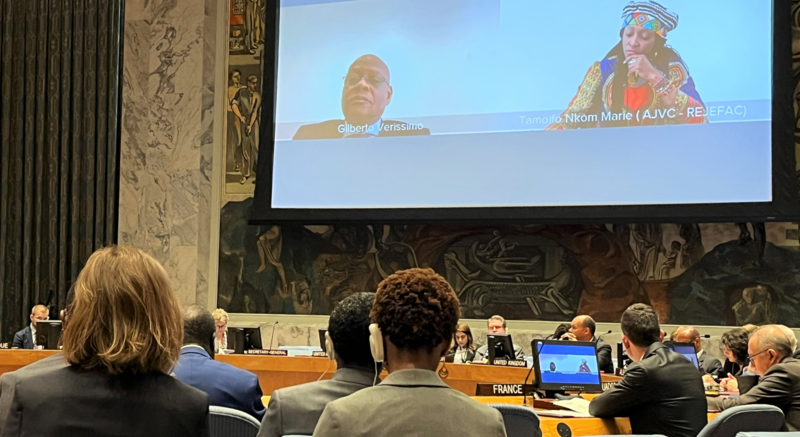
Concerning Chad in particular, Abdou Abarry welcomed “the good collaboration between ECCAS and UNOCA to help create a space for more inclusive dialogue and between Chadian political actors.” He noted that “the inclusion [of all stakeholders] and respect for freedoms are essential conditions for the sustainability and success of the transition process.” In this context, and in general, while welcoming the initiatives and actions of ECCAS for peace and security in the sub-region, he pleaded for the strengthening of its operational capacities. "The process of institutional reform of ECCAS requires [...] sustainable financial support," he underlined, calling on "the States of the sub-region to put in place mechanisms that can allow a sustainable financing of the functioning and activities of the organization in order to give it the means to fully play its role."
On quite another matter, the Special Representative of the UN Secretary-General for Central Africa regretted “the persistence of violations of human rights, in particular freedom of expression, in certain countries of the sub-region.” He stated clearly: "attempts on the life and physical integrity of journalists must stop." He took this opportunity to reiterate his resolve to continue to raise awareness of the Central African States on the importance of "the safety of journalists and access to information."
A call for solidarity with countries affected by the Sudanese crisis
All the other major matters pertaining to democratic governance and the promotion of gender were discussed as well as those related to cross-cutting issues, the cross-border management of armed groups activities and the regional impact of certain conflicts. On this last point, Mr. Abarry evoked the example of Chad and the Central African Republic (CAR) that are bearing the brunt of the Sudanese crisis. "Without a swift and peaceful resolution of the conflict, the effects will be disastrous for Sudan, but also for all the countries of the Lake Chad Basin region," he said. Mr. Abarry called for solidarity with vis-à-vis the affected States, and in particular Chad, which urgently needs $129.8 million to assist the 100,000 Sudanese refugees on its territory, for six months. "We must therefore act quickly to help this country," he concluded, adding that the CAR has welcomed 10,000 refugees.
The members of the Security Council congratulated the Head of UNOCA for his presentation and his actions to prevent conflicts, peacefully resolve crises and consolidate peace in Central Africa. They also welcomed the intervention of the President of the ECCAS Commission and that of Mrs. Marie Tamoifo Nkom, Regional Coordinator of the Network of Young Leaders for the Congo Basin Forests, whose intervention through video conferencing was focused on climate change. This session of the Security Council was chaired by Ms. Lana Zaki Nusseibeh, Permanent Representative of the United Arab Emirates to the United Nations, whose country is presiding the Council for the month of June 2023.
